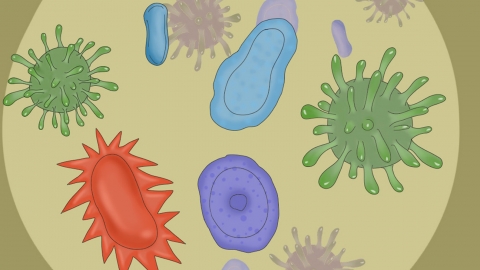How to treat a positive norovirus infection
Generally speaking, a positive result for norovirus indicates an infection with norovirus. Treatment for norovirus infection mainly involves symptomatic management, including timely isolation and rest, dietary adjustments, hydration and electrolyte replacement, regulation of intestinal flora, and antiemetic and antidiarrheal measures. Detailed explanations are as follows:

1. Timely Isolation and Rest
Patients should be promptly isolated to avoid close contact with family members, friends, and others to prevent viral transmission. Ensuring adequate rest helps the body recover, reduces energy expenditure, and enhances immunity.
2. Dietary Adjustment
During illness, patients should choose bland, easily digestible foods such as rice porridge and noodles, avoiding oily, spicy, or irritating foods. It is important to replenish fluids and electrolytes. Sweetened porridge should be consumed sparingly, as sugar may worsen diarrhea.
3. Hydration and Electrolyte Replacement
Norovirus infection often causes vomiting and diarrhea, which can lead to dehydration and electrolyte imbalance. Therefore, timely fluid and electrolyte replacement is necessary. Oral rehydration salts can be used, and intravenous fluid replacement may be required for severe dehydration to maintain the body's water and salt balance and correct dehydration.
4. Regulation of Intestinal Flora
Under a doctor's guidance, patients may use medications such as lactobacillus tablets, bifidobacterium and lactobacillus capsules, or bacillus licheniformis capsules. These medications help restore the normal intestinal flora, improve the intestinal microenvironment, reduce intestinal inflammatory responses, and promote recovery of intestinal function.
5. Antiemetic and Antidiarrheal Treatment
Patients experiencing severe vomiting may, under a doctor's guidance, take medications such as montmorillonite powder, belladonna tablets, or enteritis relief oral solution to alleviate diarrhea symptoms.
During treatment, patients should closely monitor changes in their condition. If symptoms such as persistent high fever, severe dehydration, or mental depression occur, prompt medical attention is advised.







